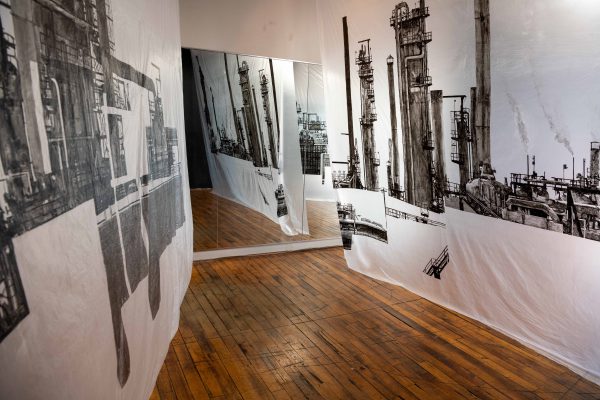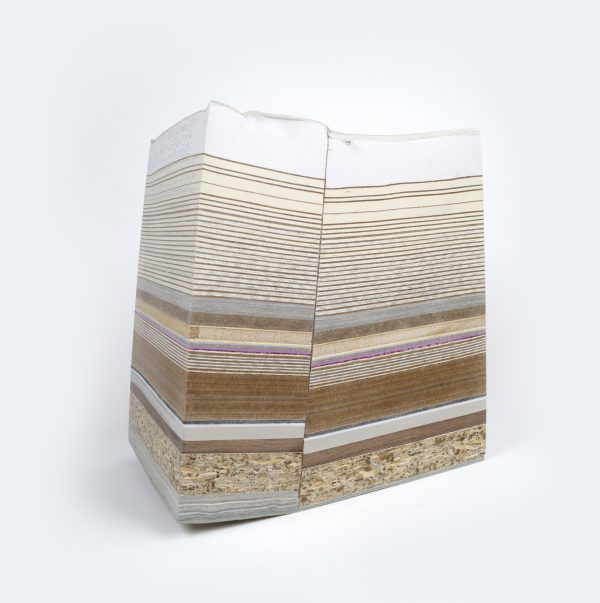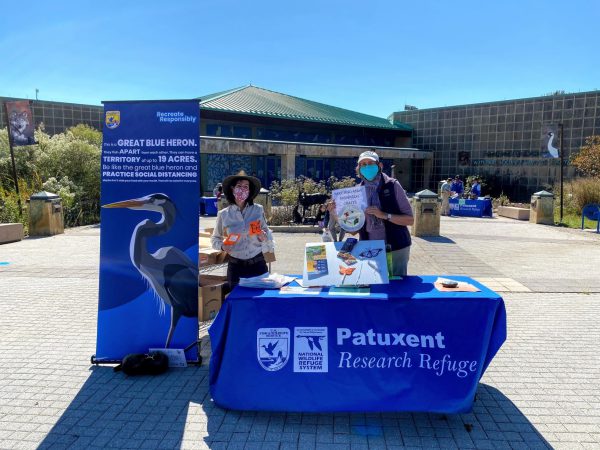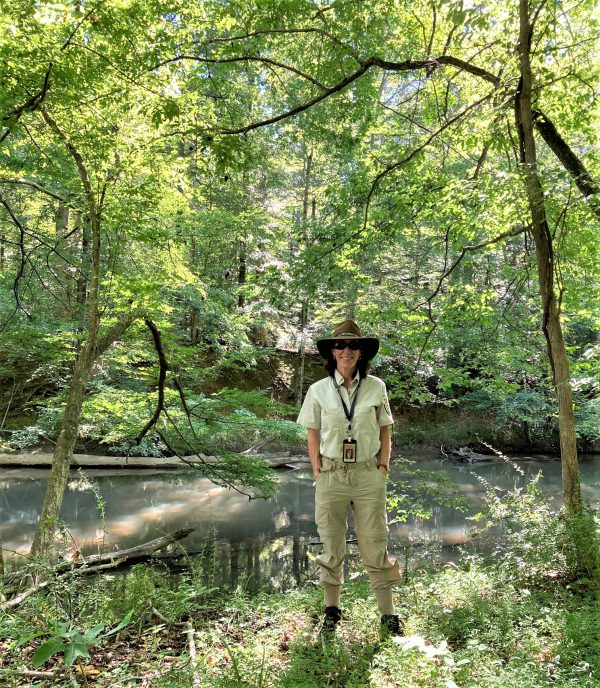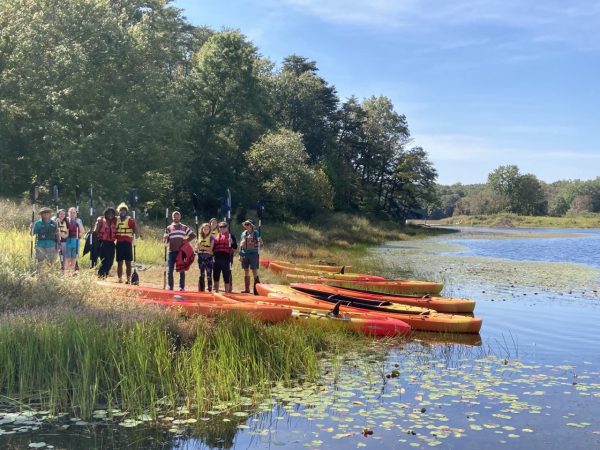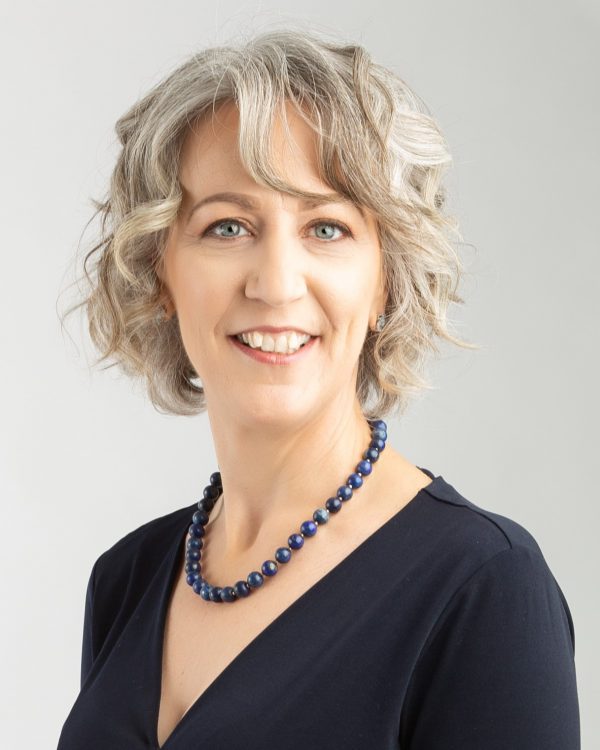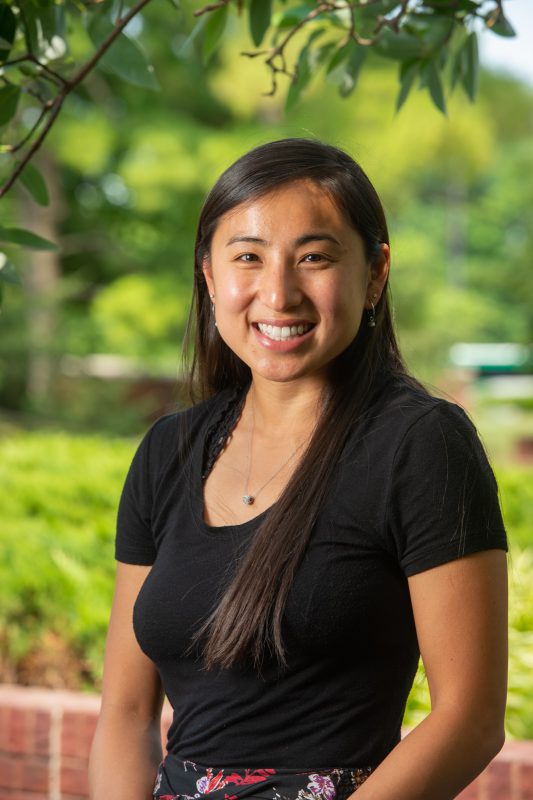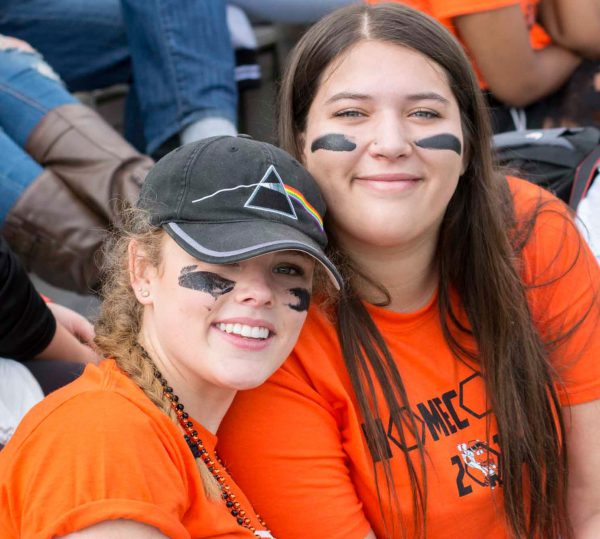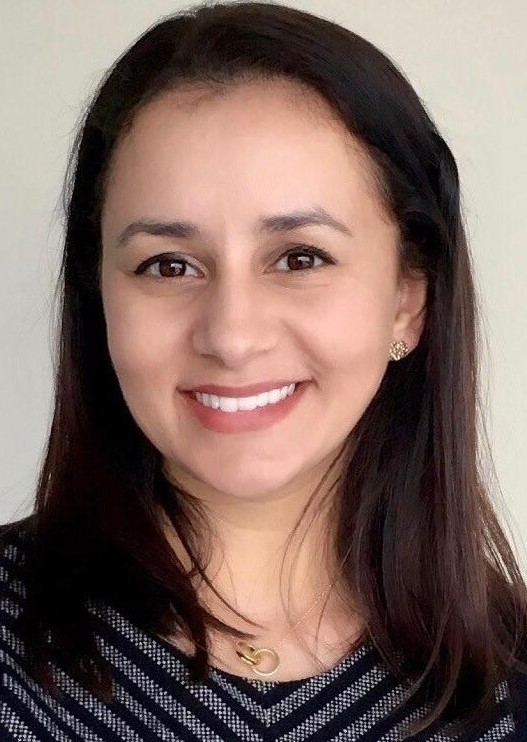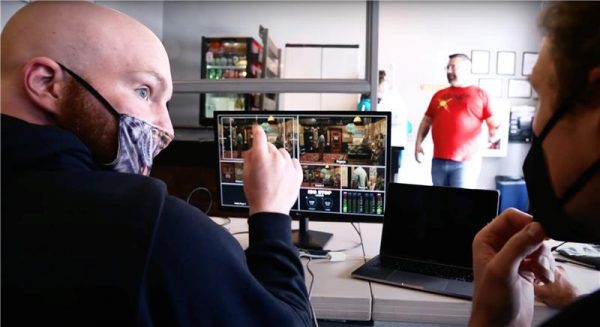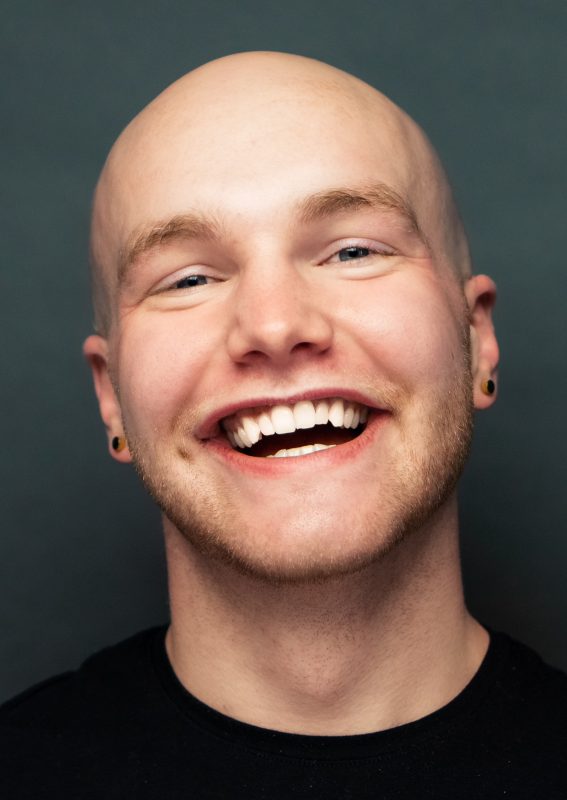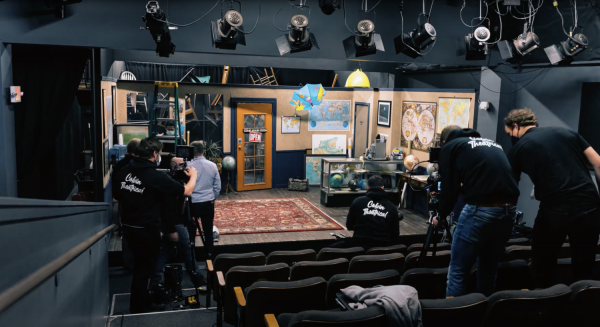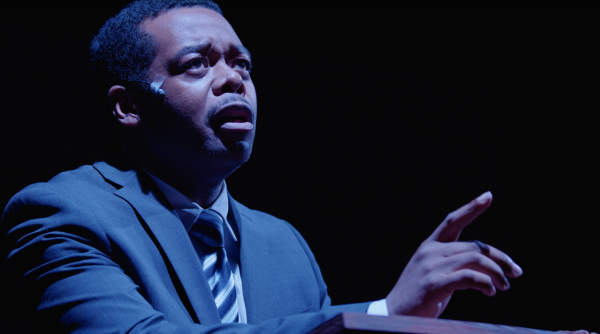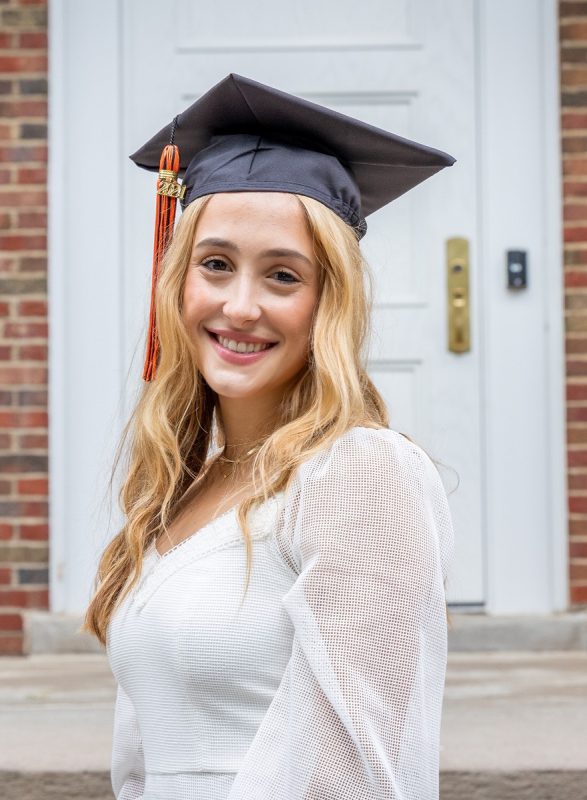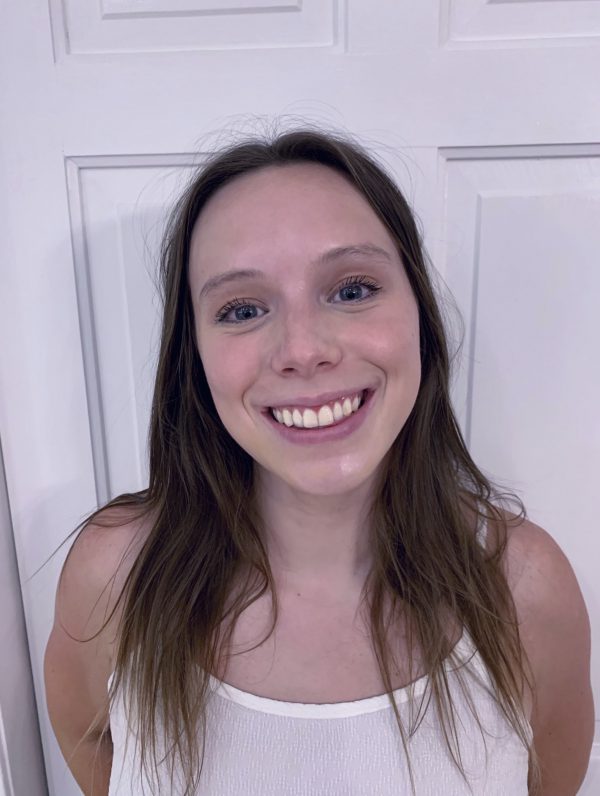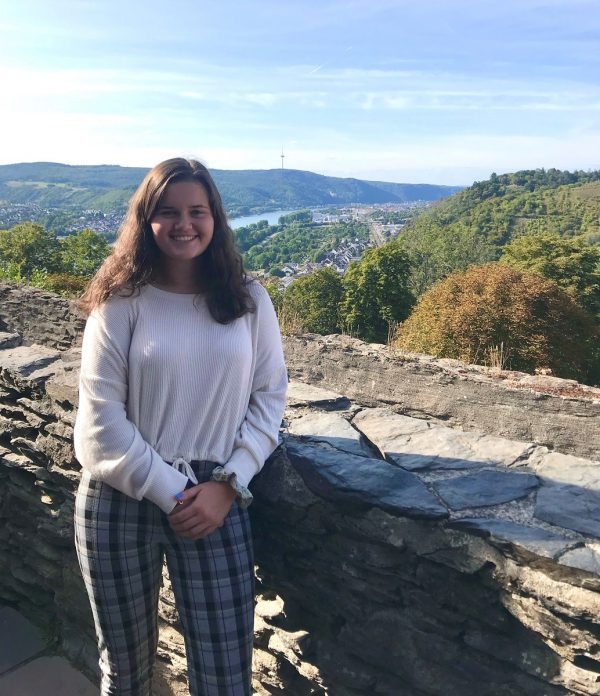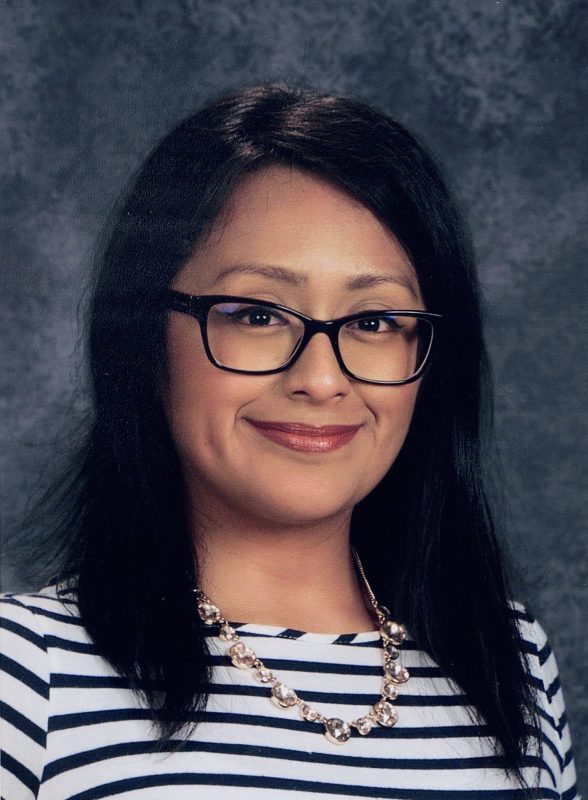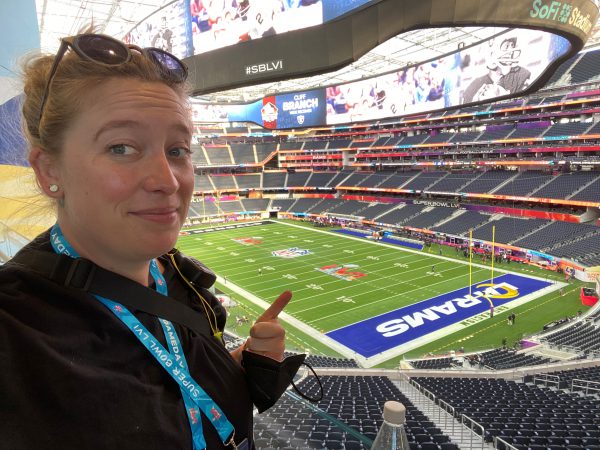
had a hand in transforming the field at Sofi Stadium in Los Angeles into a
sparkling nightscape for the Super Bowl halftime show.
A Kalamazoo College alumna was among the most important people behind the planning of one of the most acclaimed Super Bowl halftime shows to date when the Los Angeles Rams met the Cincinnati Bengals in February.
Alix Reynolds ’11, an account manager for entertainment company ATOMIC, had a hand in transforming the field at Sofi Stadium in Los Angeles into a sparkling nightscape, duplicating a scene from Compton, California, as it set the stage for musicians Snoop Dogg, Dr. Dre, Kendrick Lamar, Eminem, Mary J. Blige and 50 Cent at the National Football League’s championship game.
The performers entertained millions of people between those watching at the game and those spread out at sites around the world, making Reynolds’ responsibilities significant.
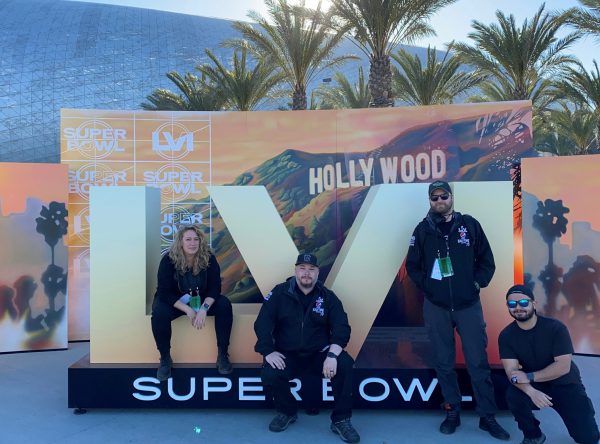
team ahead of the Super Bowl halftime show. Pictured are Reynolds
(from left), Project Manager James Rogers, Road Carpenter Jeremy
Yunkin and LED Technician Alex Thomas.
“Something like the Super Bowl halftime show is a high-risk project, especially when it involves so much technology,” Reynolds said. “There’s going to be 100 million people watching regardless of whether it succeeds. There’s always a lot of stress and anxiety, but ultimately, a really good team with the resources and know-how can make it safer with smart decisions and a lot of redundancy built into the system, which is what we had.”
Since majoring in theatre arts at K and completing her master’s degree in technical design and production at the David Geffen School of Drama at Yale, formerly the Yale School of Drama, Reynolds has become one of the first people who organizations and their planners speak to when they contact ATOMIC. The company’s work includes set construction and project planning for displays ranging from simple trade show booths to glitzy affairs such as World Wrestling Entertainment’s signature event, WrestleMania.
“The first thing that usually happens for me is a client will call, whether it’s the Super Bowl or any other job, and sometimes they know exactly what they want,” Reynolds said. “Sometimes they just have an idea of what they want to do. I’ll ask some follow-up questions and work with a project manager to figure out how much it might cost us to build and how much we should sell it for. It’s a lot of translation of taking artistic intention, taking the client’s budget and expectations, and then figuring out how we can make the client’s dreams come true.”
For Super Bowl LVI, Reynolds’ first contact was Bruce Rodgers, a production designer through the NFL and a long-standing ATOMIC client. Rodgers has been in charge of more than a dozen Super Bowl halftime shows with celebrated performers such as Prince, Beyoncé, Jennifer Lopez, Shakira and Bruno Mars.
Despite the massive team effort that the scenery’s development required, some might be surprised to know that Rodgers didn’t need to reach out to Reynolds and ATOMIC, which served as the show’s custom fabrication shop, until September 2021. At that point, the direction from Es Devlin, a stage designer and one of Dr. Dre’s representatives, came through Rodgers. That direction was to show an aerial image of the Compton night sky with a plethora of little lights, or “nodes,” that could all be individually controlled.
Based on that, Reynolds and her teammates got to work while asking questions such as “How much will it cost to cover the entire football field with fabric?”, “When will it be necessary to buy the raw materials and receive the reference images for the final product?” and “How will all the little lights work together?” Guided by the answers to those questions and others, and while maintaining contact with Rodgers and Devlin, ATOMIC completed the set-building process at Rock Lititz, a campus that several companies in the live-event industry share in Lititz. With services ranging from design to engineering and manufacturing, professionals there collaborate across companies to plan a variety of events and experiences.
“Some locals get confused as to whether Rock Lititz is a company or a place,” Reynolds said. “I say it’s both. You’ve got ATOMIC, obviously, you’ve got Clair Global which does audio for big rock tours; TAIT, which does automation for those same tours among other things; and there are smaller companies. There’s a pyrotechnics company, there’s a video company and a virtual reality company. It’s all in this tiny town.”
When fabrication was finished, a group of semitrucks drove the stage’s parts and sections to Los Angeles, first to a practice site, and then to Sofi Stadium, where dozens assembled the pieces.
“For every performer you saw on the halftime show there were probably over 100 people working behind the scenes,” Reynolds said. “Each section of the stage buildings, which were built to look like known Compton hot spots by our fellow fabrication shop All Access, split into two parts, and every half-section was pushed onto the field by 12 to 15 people. We also had people with carts that carried our big and heavy field cover to say nothing of the people back at the shop who programmed the lighting and the video.”
All of their jobs had delicate timings to observe, not only at halftime, but throughout the Super Bowl.
“Right at kickoff is when everyone started coming down into the tunnels that run the full perimeter around the field, where all the scenery was stored with all the lighting and the huge speakers,” Reynolds said. “At the end of the first quarter, we started lining up. At halftime, we knew we had eight minutes to get on the field during the commercial break and set it up.”
As the performance began, organizers had one of their few hiccups because the first half ended about 20 minutes sooner than they had planned. With the sun higher in the sky and Sofi Stadium having a glass roof, the on-stage lights were difficult to see at first. Regardless, Reynolds and her ATOMIC colleagues were happy with the end results.
“We did that balancing act of asking, ‘What are the things that could go wrong,’ and we set ourselves up for success,” she said. “In the end, it all worked perfectly on game day and it looked awesome. By the end of the show, you could really start seeing the lights. It was really easy to forget that I was standing on a football field.”
Reynolds has about seven or eight smaller projects in the works for the rest of 2022 at sites from New York to Los Angeles including an awards ceremony for an undisclosed nonprofit organization. Yet despite not being a football fan, Reynolds hopes to attend the Super Bowl again.
“I couldn’t see the first half of the game because we were in the tunnels, and we were pulling everything off the field in the second half while trying to get away before the game ended,” she said. “We then got stuck in traffic for about four hours, but the experience was pretty incredible. The first time I walked on the field and through one of those tunnels, my mouth fell open. I consider myself to be level-headed and pretty unflappable, but when I heard the roar of the crowd, I got butterflies and chills. And that was just from the people who were at the stadium, to say nothing of the millions watching online or on TV. It was an amazing experience.”

